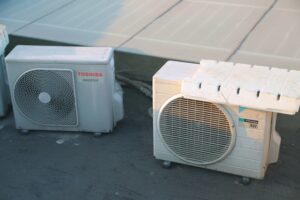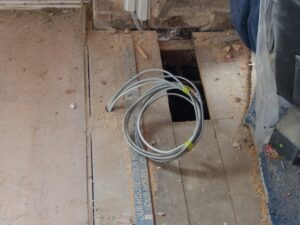If you own a boiler, you know that proper maintenance and repair are essential to keep it running efficiently and safely. Neglecting boiler maintenance can lead to decreased efficiency, higher energy bills, and even dangerous malfunctions. That said, with the right knowledge and expertise, you can keep your boiler in top condition and enjoy reliable heating throughout the year.
With the help of our team, you can ensure that your boiler runs safely and efficiently, saving you money on energy bills and preventing costly breakdowns. From regular inspections and tune-ups to emergency repairs and system replacements, we are your go-to source for boiler maintenance and repair. Contact us today to learn more about our services and how we can help keep your boiler in top condition.
Understanding Boiler Systems
Boiler systems are an essential part of any heating system, providing hot water or steam for both residential and commercial use. Understanding the components and functionality of boilers is crucial for proper maintenance and repair.
Components and Functionality
Boilers consist of several components, including a combustion chamber, heat exchanger, burner, controls, and safety devices. The combustion chamber is where fuel is burned to produce heat, which is then transferred to the heat exchanger. The heat exchanger is responsible for transferring heat to the water or steam, which is then distributed throughout the building.
The burner is responsible for igniting the fuel and controlling the flame. Meanwhile, the controls regulate the temperature and pressure of the system, while safety devices ensure that the system operates safely and efficiently.
Types of Boilers
There are several types of boilers, including combi, system, and conventional boilers. Combi boilers are the most popular type of boiler in the UK, as they are compact and easy to install. System boilers are similar to combi boilers but have a separate hot water storage tank. Conventional boilers are larger and require a separate hot water storage tank and cold water tank.
Routine Boiler Maintenance
To ensure that your boiler system operates efficiently and safely, routine maintenance is essential. Regular maintenance can help prevent costly repairs and extend the lifespan of your boiler. In this section, we will cover the two main types of routine boiler maintenance: daily and monthly checklists, and annual servicing.
Daily and Monthly Checklists
Daily and monthly checklists should be performed by the boiler operator or maintenance personnel. These checklists are designed to identify any issues or signs of wear and tear before they become major problems.
Daily checklists should include:
- Inspecting the boiler’s fuel supply, including the fuel level and quality
- Checking the water level in the boiler and ensuring that it is at the correct level
- Inspecting the boiler’s safety controls, including the low water cutoff, pressure relief valve, and flame safeguard controls
- Checking the boiler’s combustion air supply to ensure that it is clean and unobstructed
Meanwhile, monthly checklists should include:
- Inspecting the boiler’s internal and external surfaces for signs of corrosion, leaks, or damage
- Checking the condition of the boiler’s refractory and insulation
- Inspecting the boiler’s burner and flame pattern
- Checking the operation of the boiler’s pumps and motors
- Cleaning the boiler’s heat exchanger and condensate trap
Annual Servicing
Annual servicing should be performed by a qualified technician. This servicing should include a thorough inspection of the boiler and related components.
During annual servicing, the technician should:
- Inspect the boiler’s pressure vessel, burner, controls, and safety devices for signs of wear and tear
- Clean the boiler’s heat exchanger and condensate trap
- Inspect and clean the boiler’s flue and chimney
- Test the boiler’s combustion efficiency and adjust as needed
- Replace any worn or damaged parts
Common Boiler Repairs
Boilers are an essential part of any heating system, but they can develop problems from time to time. Here are some of the most common boiler repairs you may encounter.
Identifying Issues
Leaks are a common issue that can occur in boilers. If you notice any water pooling around the base of the boiler, it’s important to address the problem right away. Leaks can cause damage to your home and can also lead to more serious issues with your boiler.
Another common problem is a malfunctioning pressure gauge. If the gauge is not working properly, it can be difficult to tell if your boiler is operating at the correct pressure. This can lead to further damage to your boiler if not addressed promptly.
Repair Techniques
If you are experiencing issues with your boiler, there are a few repair techniques that may help.
For example, if your boiler is not producing enough heat, it may be due to a problem with the pilot light. In this case, relighting the pilot light may be all that is needed to get your boiler working properly again.
On the other hand, if you are experiencing issues with the water level in your boiler, it may be due to a faulty water level indicator. In this case, replacing the indicator may be necessary to ensure that your boiler is operating at the correct water level.
No matter what type of boiler repair you need, our team at Excel Mechanical is here to help. We are a trusted provider of HVAC and plumbing services for both residential and commercial customers. Our team of professionals strives for exceptional quality and great value, working to provide the best possible system to meet your individual needs and budget. Contact us today to learn more about how we can help with your boiler repair needs.
Enhancing Boiler Efficiency and Longevity
Regular maintenance is essential for ensuring the longevity and efficiency of your boiler. However, there are additional steps you can take to optimize operations and reduce your energy bill. In this section, we’ll explore some of the best ways to enhance your boiler’s efficiency and longevity.
Optimizing Operations
One of the most effective ways to improve boiler efficiency is to optimize its operations. This means ensuring that your boiler is running at its maximum capacity while using the least amount of energy possible. Here are some tips to help you do just that:
- Monitor Boiler Performance: Regularly monitoring your boiler’s performance can help you identify any issues that may be affecting its efficiency. This includes checking the pressure levels, inspecting the pipes and ducts for leaks, and ensuring that the thermostat is working correctly.
- Clean and Inspect Your Boiler: Regular cleaning and inspection of your boiler can help to prevent clogs and improve its efficiency. This includes removing any dust and debris that may have accumulated on the boiler’s surface and inspecting the heat exchanger for any signs of corrosion or damage.
- Upgrade Your Boiler Controls: Upgrading your boiler controls can significantly improve its efficiency. This includes installing a programmable thermostat that can automatically adjust the temperature based on your schedule and preferences.
Upgrade and Replacement Considerations
While regular maintenance can help to extend the life of your boiler, there may come a time when it needs to be replaced. Here are some factors to consider when deciding whether to upgrade or replace your boiler:
- Age of Your Boiler: If your boiler is more than 15 years old, it may be time to consider a replacement. Newer models are much more efficient and can help to lower your energy bill.
- Efficiency Ratings: When choosing a new boiler, be sure to look for one with a high-efficiency rating. This will help to ensure that your new boiler is as efficient as possible.
- Size of Your Home: The size of your home will also play a role in determining the type of boiler you need.
Safety and Compliance
Maintaining safety and compliance is of the utmost importance when it comes to boiler maintenance and repair. Failure to adhere to regulations and standards can result in serious safety hazards, including carbon monoxide poisoning and gas leaks.
Regulations and Standards
There are various regulations and standards that must be followed to ensure the safe operation of boilers. These include local, state, and federal regulations, as well as industry standards. It is important to stay up-to-date with these regulations and standards to ensure that your boiler is operating safely and efficiently.
We are well-versed in all relevant regulations and standards. We ensure that all of our technicians are properly trained and certified to work on boilers. We also conduct routine inspections and checks to identify any potential safety hazards and take the necessary steps to address them.
Emergency Protocols
During an emergency, having proper emergency protocols in place is crucial. This includes installing safety devices like carbon monoxide detectors and having a plan for evacuating the area in the event of a gas leak or other safety hazard.




